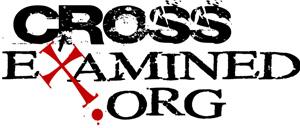Do we have a better word?
I was 31 years old before I ever cracked open a Bible, even though I was raised in a Christian denomination that professed it to be the inspired Word of God. But until that time and despite my religious upbringing, I mostly disregarded my spiritual life, so felt no compulsion to read it. There wasn’t even much, if any, encouragement from my tradition to do so. But if it is a revelation of the God of the universe, and a mirror into our own souls, how unwise are we to ignore it?
The “if” in that last sentence is what I want to concern myself with in this post, because a lack of confidence that the Bible is what it claims to be is a primary reason why many disregard it. Let me make clear at the outset that I have no conclusive evidence to prove the Bible is a reliable historical document, much less God-breathed. But if you think about it, much of what you believe to be true is not proven beyond the shadow of a doubt. George Washington was the first president of the United States. Or was he? Were you around to see him? Can you talk to anyone who was? All we have are written records. Isn’t it possible they are incorrect?
Of course, the preponderance of the evidence for Washington’s presidency is sufficient to persuade us. In the same way, the evidence for the believability of the documents that form our Bible, particularly the New Testament, is strong enough to support the weight of its importance and impact, even though they constitute literally ancient history, written many hundreds of years prior to the founding of our country.
Here then are some of the building blocks that form that strong foundation:
1. Number of manuscripts – No other ancient document even approaches the New Testament in number of ancient manuscript copies. And though there are thousands of variants between the thousands of copies, as one would only expect when a text is copied by hand, none of them affect any major doctrine of the Christian faith. As even agnostic New Testament scholar Bart Ehrman admits, “Far and away the most changes are results of mistakes, pure and simple—slips of the pen, accidental omissions, inadvertent additions, misspelled words, blunders of one sort or another” (Misquoting Jesus, 55)
2. Early originals and early copies – It is widely accepted that all of the New Testament was written in the first century, and ![]() most probably before 70 A.D. by eyewitnesses. The earliest undisputed copy fragment is dated within 75 years of the original and likely within 40. Several nearly complete Bibles date from the fourth century, and a few nearly complete New Testament copies date before 250 A.D.
most probably before 70 A.D. by eyewitnesses. The earliest undisputed copy fragment is dated within 75 years of the original and likely within 40. Several nearly complete Bibles date from the fourth century, and a few nearly complete New Testament copies date before 250 A.D.
3. Archeological evidences – The Bible is replete with mentions of specific personages, places and dates, and many of these have been corroborated in archeological discoveries, and none of them have been disproven.
4. Internal consistency – The Bible is actually composed of 66 books written by about 40 different authors over a span of approximately 1500 years. Yet it displays remarkable consistency in its depiction of God and his plan of redemption for mankind.
5. Confirmation from ancient non-Christian sources – There are at least ten non-Christian writers from within 150 years of Jesus’ life that mention him. Some of these could even be considered anti-Christian sources.
6. Biblical references from early Church fathers – Many Church leaders’ writings from the first centuries A.D. quote from the Bible, so much so that roughly half of the New Testament could be reconstructed just from their quotations.
7. Fulfilled prophecy – Numerous events foretold in the Bible have occurred, and none that should have by now have failed to. Some of the more notable fulfilled prophecies are the destruction of Jerusalem in 70 A.D., the coming and circumstances of the life and death of Jesus the Messiah, and the destruction and rebirth of the nation and land of Israel.
No other religious book is as well-attested and validated by historical and textual scholarship as the Bible. Through my study of it and about it, I have come to know the Person behind it and all through it. As I said, I can’t prove beyond question that the Bible is the revelation of the true God. But other than Creation, has the Creator left us anything else comparable to inform us of himself? Any who claim to be seekers after truth who refuse to honestly examine the historical documents that together comprise the Bible, prove beyond question the falsehood of their claim.
Here are some helpful related links:
http://danielbwallace.com/2014/03/24/can-we-still-believe-the-bible/
http://www.reasonablefaith.org/gospel-authorship-who-cares





Do you seriously think that the Bible is the best God could do at providing information to mankind? Scientists today are able to provide much more clarity and description when describing natural events. The bible struggles to explain the events it claims to have participated in.
Going back to the Bible is like resorting to a child’s interpretation on life. It simply can’t compete.
LikeLike
Hello, R.E. The Bible doesn’t claim to be a science textbook. Giving a clear description of natural events is not its purpose.
LikeLike
Then what is it good at doing?
LikeLike
The Bible tells us who God is, who we are, that he loves us, that we’re in trouble, and how to get out of it. Among other things.
LikeLike
And why should it be believed?
LikeLike
Well, R.E., for the reasons I gave here the Bible should be considered a reliable ancient document and the events it records at least largely historically accurate. You don’t have to believe that it’s inerrant to be confident in its historicity. So we can be sure beyond a reasonable doubt that Jesus was here on earth, believed himself to be God, was crucified by the Roman authorities, 3 days later his tomb was found empty, multiple people believed they saw him alive again, and his disciples gave their lives spreading the news.
LikeLike
The problem for me is, the above information described a supposed event thousands of years ago, and despite all the questions around it people are happy to dedicate their entire lives around it. It’s baffling to me.
LikeLike
What “supposed event” are you speaking of?
LikeLike
Apologies I meant supposed events. Let’s go with the crucifixion and the resurrection
LikeLike
So you don’t even believe Jesus was crucified?
LikeLike
He could well have been, but I don’t know for sure, I was born much later. I’m not going to run to church just because he may have been, nor will I believe many magical events occurred around the more plausible ones.
LikeLike
Do you only believe in things that you personally witnessed or happened in your lifetime?
LikeLike
Yes, but I would be wrong to believe other people should listen and take my word for it without reasonable evidence. I wouldn’t expect that of anyone.
LikeLike
Apologies, I do not ‘only’ believe in things that I have personally witnessed or happened in my lifetime however. I choose not to believe things just because people said they happened. If we did we would believe every religion going.
LikeLike
“I choose not to believe things just because people said they happened.” Ditto. But when multiple independent witnesses say something happened, there are good reasons for believing the records of their testimonies are historically reliable, and there are other factors that make the truth of their testimonies the best explanation of those factors, we have rational grounds to believe them.
LikeLike
So you believe it is more reasonable to assume a body rose from the dead or could walk in water, than to believe in the thousands of years passed, there was a much more logical explanation?
Multiple people didn’t witness a plane hitting the towers. Multiple people have seen Elvis walking down the street. Are you as willing to believe the witness testimonies from other belief systems, or were they making it up?
LikeLike
If we approach evidence from a presupposition that miracles can’t happen, any explanation is going to be more “logical” than that something outside the natural world affected a result that is unnatural.
LikeLike
Of course. But I would only believe the more logical conclusion with reasoning behind it. If you analyse something with the belief that miracles can happen, where do you draw the line? If a plane crashes and everyone survives, why shouldn’t we all take the easy route and call it a miracle instead of taking into account so many other factors? Miracle claims are a hinderance.
LikeLike
If everyone survives a plane crash we absolutely should look for a natural explanation, even though their complete survival may have been unlikely. I might personally believe God ordained they all live but that would be attributing it to his providence, not a miracle. Now, if one or more of them died, were buried and embalmed, and three days later exhumed themselves…well, now we’ve got something more than providence. And though we should still consider all possible natural explanations, if there are none, why should it be irrational to posit that it was a miracle?
LikeLike
The funny thing is, you will never witness that happen with your own eyes. Neither will I. I find it laughable that I am expected to believe in an incredibly powerful God yet not expect this kind of miraculous event to happen before me. If I was God, I would perform miracles in front of you and I so the case is closed. Instead he doesn’t and many theists are still happy with that. I’m convinced many theists are simply more content with mediocrity.
LikeLike
I’m glad you’re amused, RE. The funnier thing is, I have a feeling God is quite amused with you. “There they are, bellowing with their mouths…But you, O LORD, laugh at them.” Psalm 59:7a,8a
LikeLike
You are sure because it says he is? Because you are more easily convinced doesn’t mean you are right.
LikeLike
Pingback: Begging the question | a reasonable faith